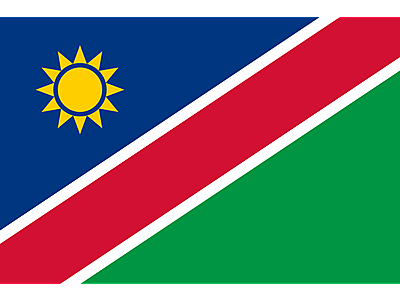Real progress in improving education in Namibia did not occur until after their Independence Day on March 21, 1990. The system prior to 1990 was ridden with apartheid generation policies that encouraged institutional racism across all levels of government.
The constitution of the new government guaranteed the right to education for all of its citizens. Specifically, free primary education, grades 1-7, and access to secondary education contingent on the success of the student and ability for that student to pay tuition. Along with guaranteeing education as a right, the new constitution abolished the apartheid-style funding system that had previously existed.
Between 1990 and the early 2000s, the country made great strides in terms of improving education. Enrollment in primary education increased from 60 to 95 percent, there was a 30 percent increase in the teaching workforce, and 3,000 new classrooms were built. But there were still questions about the quality and relevance of the curriculum, the shortage of overall schools, the availability of qualified teachers for those schools, and a lack of enrollment in secondary education due to it being cost prohibitive.
These items were taken into consideration by the government and they responded with the Education Act of 2001 that extended free tuition to all citizens seeking secondary education (up to 12th grade), along with performance standards required to move on from grade to grade.
Even with these increased investments in education, the issue of having quality teachers still was not solved. A UNICEF report that assessed the quality and success of the Namibian education system correlated increasing grade repetition rates to low teacher skills and content knowledge. There is also a lack of consistency from school to school adhering to the national performance standards.
Continue Reading
A report leaked to the media says that Namibia still has a long way to go regarding youth empowerment, especially in providing health, education and employment.
A GOVERNMENT report on the status of the Namibian youth suggests that while the state is making concerted efforts to promote youth development, there are still worrying imbalances when it comes to the health, well-being, education, employment and economic empowerment of the youth.
The leaked 132-page report is an undertaking of various ministries and the Office of the President, in partnership with the Namibia Statistics Agency, the United Nations Population Fund and the United Nations Children's Emergency Fund. It aims to provide evidence required to make informed policies to address the issues that the youth currently face.
Based on the Namibian population and housing census of 2011, the report that was leaked because it was gathering dust, said about two out of three Namibians are younger than 30.
This means that the youth (those under the age of 35) will hold the majority population for some time to come.
“Our youth are an important group that needs special focus. Not only is our population youthful, but prosperity for future generations depends on the investments that we make today with regards to our youth's health, education, social welfare and opportunities for economic empowerment,” said President Hage Geingob in the foreword.
“This report, aligned to our national frameworks and policies, should inform all our economic initiatives that target youths. It will inform relevant national development policies, including a review of the national youth policy and youth development strategies, which will facilitate that our young men and women benefit from existing and emerging opportunities in the country, and explore opportunities for engaging young people.”
Key findings suggest that despite government efforts to develop young people, Namibia still has a significant number of youths in marginalised communities who require special focus as they remain more disadvantaged than anyone elsewhere in Namibia.
The challenges they face include less access to health, education, water and infrastructure; and limited representation in formal government.
Continue Reading
Namibia has celebrated 24 years of independence since 21 March 1990. This day doesn't only signify the fact that we are free from slavery or that the war has ended or has been won, but it shows how Namibia has emerged from what was once barren, poverty-stricken, enslaved, exposed (in terms of resources), degraded and misused as if it were some sort of useless item to a resource-rich, opportunity-filled, talented, passionate nation filled with vibrant people.
We used to view this day as a day to celebrate the fact that Namibia has finally won the war against oppression but unfortunately, this day like many others is now used as an excuse to binge drink. Many have forgotten the hardships they had to go through in order to attain independence, yet many still value that day and will never forget.
Many argue that it is us the 'born-frees', a term loosely used to describe the children who were born after independence, that don't value the importance of our liberation struggle but maybe repeating videos and the same songs all over again isn't appealing to us. We appreciate the attempt of the movie 'Internal Struggle for Namibia's Independence:1985-1989', but perhaps if we could have more on the advertising of this day perhaps we would listen. Perhaps if we stop accusing our generation of not listening, we would actually listen.
I would also like to take this moment to tell my fellow children of this land. We might have found the war over in this country when we were born, but that isn't an excuse for us to destroy it. Let us appreciate our freedom fighters, those who are alive and those who have fallen. Let us take this moment and admire the brave work they've done as they have died in the line of duty to save us and bring us where we are now.
Enough with this political talk of how our Namibian government or how our ministers aren't doing enough. They did their part by freeing this country. Why don't you do your part and study so you can put into practice what you so freely preach? Happy Independence Day, Namibia!
Continue Reading

